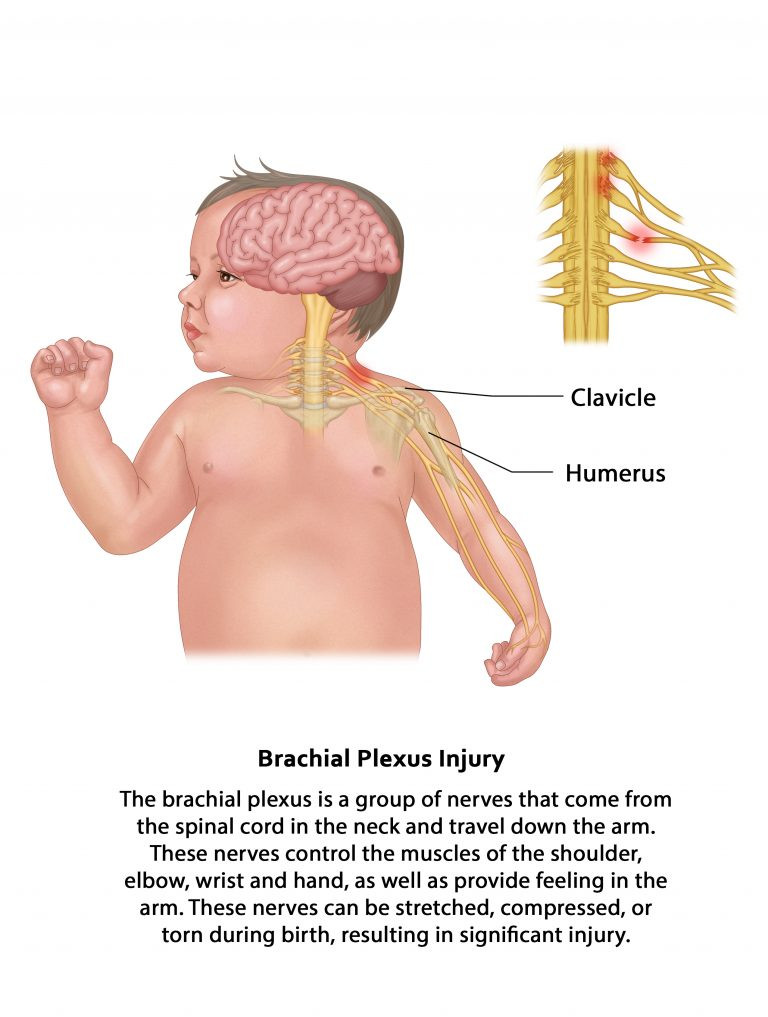Ohio Birth Negligence Attorneys
 Investigating newborn injuries and taking swift action against negligent doctors and healthcare professionals
Investigating newborn injuries and taking swift action against negligent doctors and healthcare professionals
Newborn injuries are traumatic and stressful for new parents. Though many newborns make a full recovery after suffering injuries at birth, many are left with permanent complications and disabilities. Rather than enjoying the first weeks of parenthood at home with their new babies, parents of injured newborns must worry about hospital bills, treatment options, and medical complications that may arise in the future. At the Eisen Law Firm, we focus solely on medical negligence claims. We pursue all avenues of recovery on behalf of injured babies and ensure that they and their families are fully compensated for their injuries.
Brachial plexus injuries are often preventable
The brachial plexus refers to a group of nerves that are located around the shoulder. If these nerves are injured, weakness or a loss of mobility in the arm may result.
If the upper arm is primarily affected, it is called brachial plexus palsy. This condition may also be called Erb-Duchenne, Duchenne-Erb paralysis, or just “Erb’s palsy.”
If the lower arm or hand is affected, it is referred to as Klumpke paralysis. Although Klumpke paralysis does not occur as often as Erb’s palsy, it does develop in some births.
How do brachial plexus injuries occur?
During birth, there are several ways the brachial plexus may be injured or damaged. Brachial plexus injuries may be caused by:
- The baby’s head or neck pulling to the side as the shoulders are being delivered
- The baby’s shoulders being stretched as the baby is being delivered head first
- During a breech (feet first) birth, too much pressure may be placed on the baby’s arms
Doctors, nurses, and other medical professionals should take all precautions necessary to ensure brachial plexus injuries do not occur.
What are the risk factors for brachial plexus injuries?
There are several factors that may increase the odds of a brachial plexus injury during birth. These include:
- A higher birth weight
- An abnormally narrow pelvis
- Breech birth position
- A difficult delivery, especially when it is challenging to get the baby’s shoulders through the birth canal
If it is apparent that a vaginal birth may be too risky for the newborn, a Caesarean section may be recommended to avoid brachial plexus injuries. If a Caesarean section is not necessary, doctors and nurses should closely monitor the mother and baby during birth and delivery to avoid brachial plexus injuries. There are specific maneuvers that can be performed by an obstetrician when the baby’s shoulders get “stuck,” but they must be performed quickly and properly, or injury may result.
How do I know if my baby has a brachial plexus injury?
If you notice any of the following in your baby, contact your baby’s pediatrician for a thorough evaluation:
- A lack of movement in one of the baby’s hands or arms
- The “startle reflex” only occurs on one side
- The baby keeps an arm bent and close to the body
- The baby has a weaker grip on one side
Your baby’s pediatrician can diagnose the presence of a brachial plexus injury.
Many brachial plexus injuries heal within three to nine months. If the baby does not recover in this time, surgery may be necessary. In some cases, the baby may not recover the full range of motion in the affected arm or hand.
Did your baby suffer a brachial plexus injury? If so, contact leading Ohio birth injury lawyers today for help
If your newborn suffered a brachial plexus injury at birth, contact us right away. If medical professionals caused your baby’s injury, you and your child may be entitled to compensation. At the Eisen Law Firm, our Ohio birth injury attorneys are noted leaders in medical malpractice cases. Medical malpractice is all we do. We carefully study your child’s medical records and consult with experts to determine if a claim for medical negligence is feasible. If it is, we will zealously advocate on your behalf, and we will dedicate ourselves to obtaining maximum compensation for your child’s injuries. To schedule a free consultation, call 216-687-0900 or contact us online.




